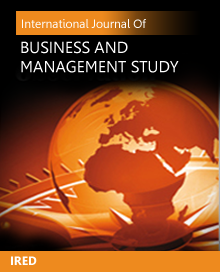The Study Of Female Entrepreneurs’ Resource Bricolage Behavior Modeling
Author(s) : CHING-HSUN CHANG, HSIEN-SHENG HSIAO, HUI-LIN LEE
 Abstract
Abstract
With progression towards opening up for social changes such as gender equality and women's issues rise to power, female entrepreneurs behaviors and road to success have become focuses of innovative entrepreneurship researchers. With the help of education popularization and the support of a friendly environment, economically speaking, women's willingness and capability to enter the entrepreneurial market has been greatly strengthened, although the details may still lack attention and analysis. In this study, The Theory of Planned Behavior was adopted as the basis for constructing the Female Entrepreneurs Bricolage Behavior Model, with “Entrepreneurial attitude and “Entrepreneurial orientation as independent variables for checking the predictive power of both on Resource bricolage behavior and checking the influence of “Entrepreneurial orientation as a mediating variable. Through judgmental sampling, successful female entrepreneurs from the W Federation of Chinese Business Women were selected as participants for the questionnaire survey. All indirect effects were subjected to follow-up bootstrap analyses with 5,000 bootstrap samples and 95% bias-corrected confidence intervals. The results support that the research tool after passing the test demonstrated reliability and validity. The modeling analysis results show that “Entrepreneurial attitude (β = .668, p<.001) produced a significantly positive predictive power on “Resource bricolage: Entrepreneurial attitude produced a significantly positive predictive power on the sub-dimensions of “Entrepreneurial orientation,namely, Innovativeness (β = .601, p<.001), Proactiveness (β = .673, p<.001), and Risk taking (β = .648, p<.001); the sub-dimensions of Entrepreneurial orientation,namely, Innovativeness (β = .610, p<.01) and Risk taking (β = .536, p<.05) produced a significantly positive predictive power, indicating that Innovativeness and Risk taking played a partially mediating role, while Proactiveness (β = -.365, p>.05) produced no effect as a mediating variable.
 Full Paper PDF
Full Paper PDF
